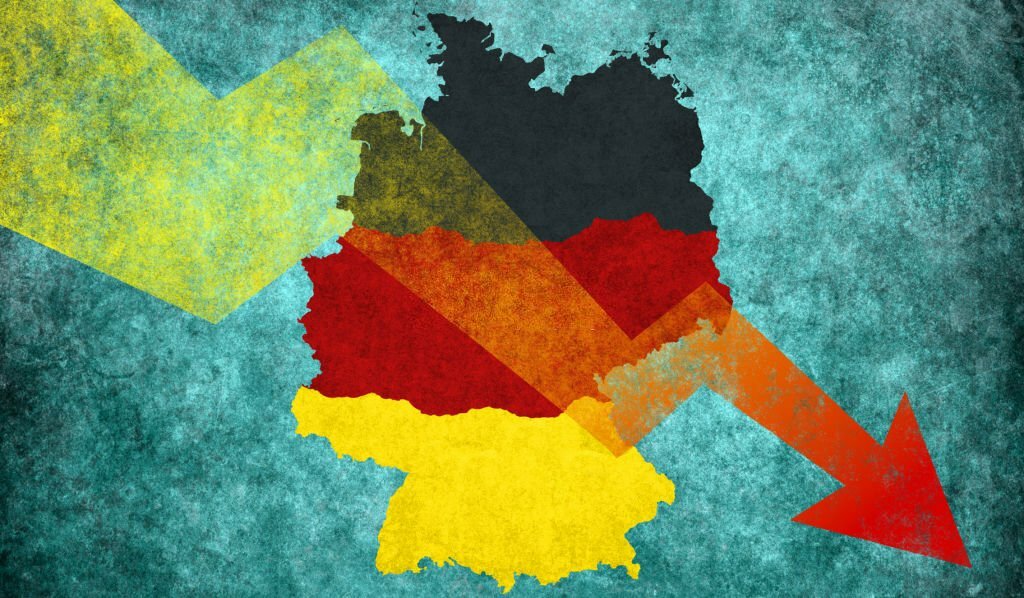Frankfurt — The International Monetary Fund (IMF) delivered a sobering update on Germany’s economic outlook on Tuesday. The European powerhouse, often regarded as the continent’s primary growth driver, is anticipated to be the most underperforming major economy in 2023.
The IMF revealed that the German economy, currently grappling with surging inflation and a downturn in manufacturing, is projected to contract by 0.5% this year. This is a steeper decline than the 0.3% contraction the IMF had predicted in July.
In a notable distinction, Germany stands out as the only member of the Group of Seven (G7) advanced economies predicted not to witness growth this year.
The IMF’s recent report highlighted several challenges facing Germany, including a “weakness in interest-rate-sensitive sectors and a diminished demand from trading partners.” The nation, which entered a recession at the beginning of 2023 and saw no growth in the second quarter, is on track for a minor economic decline in the latter half of the year.
However, there’s a glimmer of hope on the horizon. The Washington-based institution anticipates Germany to bounce back in 2024, albeit with a revised growth expectation of 0.9%, down from the 1.3% forecasted in July.
Germany’s economic struggles are expected to weigh on the broader eurozone. The IMF has adjusted its growth forecast for the 20-member currency bloc in 2023, now predicting a 0.7% growth.
In contrast, France, a significant player in the eurozone, received a more optimistic forecast. Citing a surge in industrial production and external demand, the IMF now expects the French economy to expand by 1.0% in 2023, an improvement from the previously forecasted 0.8%. However, Italy, another G7 member, wasn’t as fortunate. Facing persistent inflation rates above the eurozone’s average, its growth forecast was reduced by 0.4 percentage points, now standing at 0.7%.
Challenges Beyond Numbers
Several external factors are exacerbating Germany’s economic woes. The escalating energy prices, attributed to Russia’s conflict in Ukraine, combined with the European Central Bank’s interest rate hikes to temper inflation, and a reduced demand from China, are all impacting Germany, a nation renowned for its exports.
The cessation of affordable gas imports from Russia has particularly shaken Germany’s energy-reliant sectors. This shift has sparked intense debates about potential de-industrialisation, with companies contemplating relocating their production overseas.
Simultaneously, Germany, the European Union’s most populous country, is wrestling with inherent structural issues, including an ageing populace and a scarcity of skilled labour. Such challenges have reignited discussions in some media circles, drawing parallels to Germany’s situation in the late 1990s, when it was dubbed “the sick man of Europe” due to the economic repercussions of reunification.
In response to these challenges, the German government is set to release its autumn forecasts. Preliminary media reports suggest that Berlin anticipates the economy to contract by 0.4% in 2023, a stark contrast to the earlier spring forecast of a 0.4% growth.
Economy Minister Robert Habeck emphasized the need for prompt measures. “We need to remove obstacles to investment, clear out the jungle of bureaucracy, and make things easier for entrepreneurs,” he expressed last month.
In a bid to invigorate the economy, the government has introduced a 211-billion-euro ($223 billion) fund titled “climate and transformation fund.” This initiative aims to back companies investing in modernisation and accelerate the transition to green energy.
Chancellor Olaf Scholz has also unveiled a “Germany pact,” encompassing strategies to expedite digitisation and streamline approval processes for construction ventures.
Isabel Schnabel, a German member of the ECB board, commented on Germany’s potential for long-term growth, emphasizing the nation’s ability to adapt and overcome. “Germany has managed to transform itself in the past, and I am confident that it will be able to do so today,” she shared with a Croatian newspaper recently.
Holger Schmieding, an economist at Berenberg bank, urged caution against underestimating Germany’s tenacity. Highlighting the nation’s “hidden champions” – specialized small to medium-sized firms known for their resilience – he noted their history of weathering economic storms and identifying new opportunities. “The current wave of pessimism is far overdone,” Schmieding opined.














